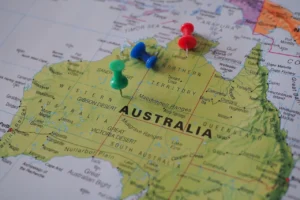
The World Health Organization (WHO) is moving forward with plans to amend the International Health Regulations (2005) (IHR) to give it new powers to counter “misinformation and disinformation.” The proposed amendments, which were first proposed by the Biden administration in January last year, have now been expanded by other member states to include provisions that apply to “potential” health emergencies and health risks, new powers to declare health emergencies, and a provision recognizing the WHO as the “coordinating authority” during a public health emergency of international concern (PHEIC).
The proposed amendments empower the WHO to strengthen its capacity to “counter misinformation and disinformation” and build the capacities of member states to gain “leverage of communication channels to communicate the risk, countering misinformation and disinformation.” They also allow the WHO to strengthen its capacity to “coordinate with UN agencies, academia, non-state actors and representatives of society.”
The WHO has already been very vocal about the purported harms of misinformation and disinformation and claimed that it can “undermine public trust in health agencies and impede public confidence in, and compliance with, governmental or WHO guidance.” It also branded “vaccine hesitancy and the spread of misinformation” as hurdles that need to be tackled and even suggested that “anti-vaccine activism” is deadlier than “global terrorism.”
The WHO has the authority to adopt these proposed amendments under Article 21 of the WHO Constitution. After the amendments are finalized, they’ll come into force for all member states “after due notice has been given of their adoption” by the World Health Assembly (WHA), the decision-making body of the WHO, unless member states reject them within a specified period. This specified period for these proposed amendments to the IHR is six months.
The WHO getting a potential increase in censorship powers is just one of the implications of these proposed amendments to the IHR and the international pandemic treaty being finalized. Both of these measures also push for increased surveillance powers and the proposed amendments to the IHR lay out a roadmap for international vaccine passports. While some politicians have opposed the proposed amendments to the IHR, this opposition has yet to prevent the WHO from moving forward with its provisional timeline of finalizing the amendments by May 2024.
Additional Information:
Who funds the World Health Organization?
The World Health Organization (WHO) is funded by member states, voluntary contributions from industry and private donors, technical assistance from donor nations, and assessed and voluntary contributions from United Nations (UN) organizations.
How much money does World Health Organization get from Bill and Melinda foundation?
The Bill & Melinda Gates Foundation has provided more than $1.75 billion to support the work of the World Health Organization (WHO) since 2000.
Who Is Tedros Adhanom Ghebreyesus of the WHO?
The controversy surrounding Tedros Adhanom Ghebreyesus, the Director-General of the World Health Organization (WHO), primarily revolves around his alleged links to the oppressive regime in Ethiopia, where he previously served as Minister of Health. Reports have suggested that he may have been involved in covering up human rights abuses and allowing the use of torture against political opponents. Additionally, there have been accusations that he was complicit in the misuse of funds and mismanagement of the country’s healthcare system during his tenure as Minister of Health.
Member of WHO who have worked for Pfizer, the criminal organization that wants to vaccinate you.

Carl Riedel is an experienced writer focused on using Open Source Intelligence (OSINT) to produce insightful articles. Passionate about free speech, he leverages OSINT to delve into public data, crafting stories that illuminate underreported issues, enriching public discourse with perspectives often overlooked by mainstream media.






